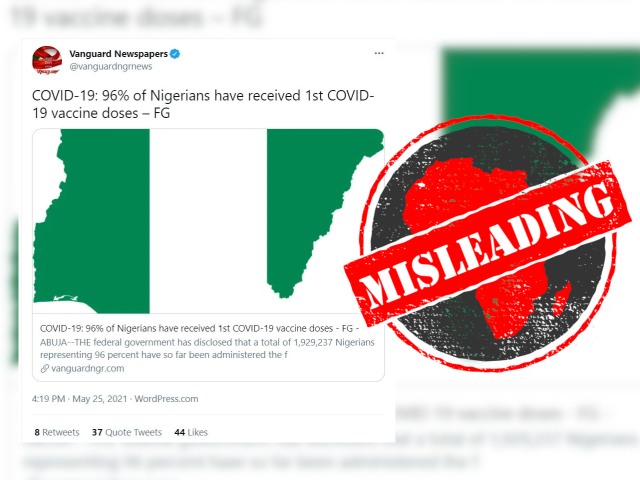“Child abusers will be PUBLICLY hanged in Pakistan under a new resolution passed by parliament,” claims a graphic shared on Facebook in South Africa.
It shows a noose being tied to a gallows.
Is this true?

On 7 February 2020, Pakistan’s lower house of parliament, the national assembly, adopted a resolution demanding the public hanging of people convicted of the sexual abuse and murder of children. The resolution was passed with a majority vote.
It was tabled by minister Ali Muhammad Khan, who claimed that it was supported by Pakistan’s prime minister, Imran Khan.
The resolution has since been opposed by some lawmakers, including human rights minister Shireen Mazari. The human rights organisation Amnesty International has also come out against it.
But the resolution hasn’t become law.
A bill and a resolution are not the same thing in Pakistan. The Pakistan senate’s glossary of terms defines bills as “a motion for making a law”, while a resolution is “ a motion for the purpose of discussing and expressing an opinion on a matter of general public interest and includes resolutions specified in the Constitution.”
It is noteworthy that the resolution does not appear on the National Assembly’s website under the section detailing the bills passed. It is therefore likely that the resolution has not been crystallised into a bill.
According to New York University’s Hauser Global Law Program, which has published a legal guide to Pakistan, for a new law to be passed, a bill needs to first be passed by both lower and upper houses of parliament. It is then sent to the president of Pakistan for assent.
The graphic is misleading for a number of reasons. It’s not certain that child abusers “will be publicly hanged”, because the resolution isn’t an actual law.
And the claim says all “child abusers” will be hanged. The resolution only refers to people found guilty of child sexual abuse and murder, not child abuse in general.
Sahil, a Pakistani NGO focused on research and advocacy around child abuse and exploitation, includes abduction, sodomy, rape, gang rape, gang sodomy, missing children, attempted rape, and child marriage under its definition of child abuse. Its definition of child sexual abuse excludes abduction, missing children and child marriage.
According to a 2018 report by Sahil 2,327 cases of child sexual abuse were reported by newspapers in Pakistan. – Naledi Mashishi
It shows a noose being tied to a gallows.
Is this true?

Resolution passed, but not law
On 7 February 2020, Pakistan’s lower house of parliament, the national assembly, adopted a resolution demanding the public hanging of people convicted of the sexual abuse and murder of children. The resolution was passed with a majority vote.
It was tabled by minister Ali Muhammad Khan, who claimed that it was supported by Pakistan’s prime minister, Imran Khan.
The resolution has since been opposed by some lawmakers, including human rights minister Shireen Mazari. The human rights organisation Amnesty International has also come out against it.
But the resolution hasn’t become law.
A bill and a resolution are not the same thing in Pakistan. The Pakistan senate’s glossary of terms defines bills as “a motion for making a law”, while a resolution is “ a motion for the purpose of discussing and expressing an opinion on a matter of general public interest and includes resolutions specified in the Constitution.”
It is noteworthy that the resolution does not appear on the National Assembly’s website under the section detailing the bills passed. It is therefore likely that the resolution has not been crystallised into a bill.
According to New York University’s Hauser Global Law Program, which has published a legal guide to Pakistan, for a new law to be passed, a bill needs to first be passed by both lower and upper houses of parliament. It is then sent to the president of Pakistan for assent.
Child sexual abuse and murder
The graphic is misleading for a number of reasons. It’s not certain that child abusers “will be publicly hanged”, because the resolution isn’t an actual law.
And the claim says all “child abusers” will be hanged. The resolution only refers to people found guilty of child sexual abuse and murder, not child abuse in general.
Sahil, a Pakistani NGO focused on research and advocacy around child abuse and exploitation, includes abduction, sodomy, rape, gang rape, gang sodomy, missing children, attempted rape, and child marriage under its definition of child abuse. Its definition of child sexual abuse excludes abduction, missing children and child marriage.
According to a 2018 report by Sahil 2,327 cases of child sexual abuse were reported by newspapers in Pakistan. – Naledi Mashishi
Republish our content for free
For publishers: what to do if your post is rated false
A fact-checker has rated your Facebook or Instagram post as “false”, “altered”, “partly false” or “missing context”. This could have serious consequences. What do you do?
Click on our guide for the steps you should follow.
Publishers guideAfrica Check teams up with Facebook
Africa Check is a partner in Meta's third-party fact-checking programme to help stop the spread of false information on social media.
The content we rate as “false” will be downgraded on Facebook and Instagram. This means fewer people will see it.
You can also help identify false information on Facebook. This guide explains how.




Add new comment